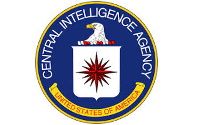LEGAL AND POLICY ISSUES 2002-2005


FEBRUARY 7, 2002
President Bush issues a memorandum titled “Humane Treatment of al Qaeda and Taliban Detainees.Continued


MARCH 27, 2002
Abu Zubaydeh (AZ) is captured, badly wounded.
APRIL, 2002
CIA Office of General Counsel (OGC) lawyers begin to discuss interrogation techniques with lawyers from the Office of Legal Counsel (OLC) at DOJContinued


APRIL 16, 2002
National Security Council (NSC) meeting on interrogation techniques attended by OLC and CIA OGC attorneys. [OPR Report at 40-41]
JULY 11, 2002
OLC Deputy Assistant Attorney General John Yoo and an OLC line attorney brief Assistant Attorney General for the Criminal Division Michael Chertoff on their research on the interrogation issue, sharing a draft OLC opinion. [OPR Report at 45]
JULY 12, 2002
Yoo and the OLC line attorney brief White House Counsel Alberto Gonzales on their research on the interrogation issue, sharing a draft OLC opinion. [OPR Report at 45]
JULY 13, 2002
Meeting on interrogation techniques attended by executive branch officials, including Assistant Attorney General Chertoff and representatives from OLC, CIA, and NSC staff. [OPR Report at 45]
JULY 16, 2002
Yoo and the OLC line attorney meet again with Gonzales at the White House regarding interrogation techniques.
JULY 17, 2002
National Security Advisor Condoleezza Rice conveys policy approval for use of Enhanced Interrogation Techniques (EITs), subject to DOJ legal approval. [Senate Intelligence Committee, Declassified Narrative Describing The Department of Justice Office of Legal Counsel’s Opinions on the CIA’s Detention and Interrogation Program at 3-4 (Apr. 22, 2009) (“Rockefeller Report”)
JULY 24 & 26, 2002
OLC orally advises CIA OGC that the EITs, including the waterboard, are lawful.[Exhibit C at 1]
AUGUST 1, 2002
Classified OLC Memorandum for John Rizzo “memorializes our previous oral advice, given on July 24, 2002 and July 26, 2002,” that the proposed conduct regarding the interrogation of Abu Zubaydah, would not violate the legal prohibition on torture. Ten enhanced interrogation techniques, including ....Continued


OCTOBER 23, 2002
Scott Muller starts as CIA General Counsel.
DECEMBER, 2002
NSC Legal Advisor Bellinger confirms for Muller on two occasions that the use of EITs “had been extensively discussed and was consistent with the President’s direction as reflected in the February Memo [on humane treatment].” [Exhibit B at 2].
DECEMBER 13, 2002
In one of several conversations on the issue, Deputy Assistant Attorney General for OLC John Yoo informs Muller that the February memo is not applicable to CIA and that DOJ had considered the issue in preparing its opinions on the use of EITs. [Exhibit B at 2-3]
JANUARY 13, 2003
Muller meets with White House Counsel Alberto Gonzales, Counsel to the Vice President David Addington, Yoo, and DOD General Counsel Jim Haynes. Addington and Gonzales confirm that the February memo on humane treatment only applies to the Armed Forces. [Exhibit B at 3-4]
JANUARY 16, 2003
Tenet and Muller attend a meeting with Rice, Secretary of Defense Rumsfeld, Haynes, Secretary of State Colin Powell, and Vice President Cheney. . According to a memorandum from Muller that describes the meeting: “[Muller] pointed out to the National Security Advisor . . . and the .....Continued


APRIL-JUNE 2003
CIA OGC collaborates with OLC to produce a document: “Legal Principles Applicable to CIA Detention and Interrogation of Captured Al-Qa’ida Personnel.” (“Legal Principles”).
JUNE 16, 2003
CIA personnel fax the final version of the Legal Principles to Deputy Assistant Attorney General for OLC Patrick Philbin. [Exhibit D] This document states, among much else, that the use of EITs in the interrogation of Al-Qa’ida personnel would not violate the Constitution for two independent reasons. ...Continued


JUNE 20, 2003
Muller and CIA OGC attorney Jonathan Fredman meet with Gonzales, Addington, Philbin, and Bellinger, who reaffirm the lawfulness of the EITs and discuss the Administration response to an inquiry from Senator Leahy.
JUNE 25-27, 2003
Administration statements raise questions about the policy of the Administration. Specifically: (1) DOD General Counsel Jim Haynes told Senator Leahy that “United States policy is to treat all detainees and conduct all interrogations, wherever they may occur, in a manner consistent with this ...Continued


JULY 3, 2003
Director of Central Intelligence George Tenet sends a memorandum to NSA Rice, requesting reaffirmation of the CIA’s interrogation program and the use of EITs. . [Exhibit F] That memo notes that: “Last September and again recently the Department of Justice’s Office of Legal Counsel (OLC) ...Continued


JULY 29, 2003
Tenet and Muller meet with Attorney General John Ashcroft, now Associate Deputy Attorney General Philbin, NSA Rice, White House Counsel Alberto Gonzales, Legal Advisor to the NSC John Bellinger, and Vice President Dick Cheney for a review ...Continued


SEPT 16, 2003
Secretaries Powell and Rumsfeld are formally briefed on the use of EITs. [Rockefeller Report at 7]
APRIL 28, 2004
60 Minutes broadcasts graphic photos of detainee mistreatment at Abu Ghraib.
APRIL 30, 2004
Government publicly releases report by Major General Taguba regarding misconduct by military policy at Abu Ghraib.
MAY, 2004
Philbin advises Muller that DOJ was taking the position that it had not formally opined that the CIA’s use of EITs was consistent with the Fifth Amendment standard of not shocking the conscience, since the Amendment does not apply overseas. [Exhibit I at 1]
MAY 24, 2004
Tenet orders the suspension of the interrogation techniques, pending written reaffirmation of the constitutional analysis from DOJ. [Exhibit I at 1]
MAY 25, 2004
CIA issues a Lotus Note to the relevant overseas locations that suspends the use of EITs. [Exhibit J at 1]
MAY 28, 2004
Tenet speaks with Ashcroft regarding the “shock the conscience” standard of the Fifth Amendment. . Ashcroft reiterates that there was no formal OLC opinion, and raised concerns relating to the number of times the waterboard had been used. Tenet reminds Ashcroft that he had been informed ...Continued


JUNE 3, 2004
Tenet submits his resignation to President Bush, effective July 11, 2004.
JUNE 4, 2004
Tenet sends a formal memorandum to the Deputy Director, Operations telling him to stand down and not to use any interrogation techniques, other than question and answer, pending clarification from DOJ: “The General Counsel has advised that the Department of Justice (DOJ) ...Continued


JUNE 7, 2004
The Washington Post reports on the existence of the August 1, 2002 memorandum from OLC to White House Counsel Gonzales regarding the use of EITs under federal law.
JUNE 10, 2004
Assistant Attorney General, OLC, Jack Goldsmith sends Muller a letter saying that the 2003 Legal Principles document does not and did not reflect OLC opinion and views.
JUNE 13, 2004
The Washington Post publishes the August 1, 2002 OLC memorandum for Gonzales.
JUNE 14, 2004
Muller replied to Goldsmith’s letter of June 10: “Representatives of the Department of Justice’s Office of Legal Counsel (OLC) and CIA’s Office of General Counsel (OGC) jointly prepared the Legal Principles document during May and June 2003 based principally on legal research, opinions, and advice ...Continued


JUNE 18, 2004
In a memorandum to CIA Inspector General John Helgerson regarding his review of the CIA’s detention and interrogation activities, Goldsmith addresses the present disagreement over the status of the Legal Principles and states “There is no dispute that OLC attorneys reviewed and provided comments on several drafts of the [Legal Principles].” [Exhibit P at 1]
JUNE 20, 2004
Around this date, Goldsmith withdraws the August 1, 2002 OLC opinion for Gonzales.
JUNE 22, 2004
Tenet sends individual letters to the Chairs and Vice-Chairs of the House and Senate Intelligence Committee (Senators Roberts and Rockefeller and Representatives Goss and Harman) that notifies them of the suspension of the use of EITs and the related shift in DOJ’s posture. Tenet also recounts the prior executive and legislative branch approvals of the interrogation program. [Exhibit Q at 2]
JULY 2, 2004
Tenet and Muller meet with Rice, Ashcroft, Deputy Attorney General Jim Comey, Gonzales, Bellinger and others seeking a decision from the NSC Principals that the use of EITs does not violate U.S. law or the standards of conduct enunciated by the courts under the Fifth, Eighth, and ...Continued


JULY 11, 2004
Director Tenet’s last day as DCI.
JULY 22, 2004
Attorney General Ashcroft writes Acting Director of Central Intelligence John McLaughlin to confirm that the use of the previously-approved techniques (except the waterboard) would not violate the Constitution or any statute or treaty of the United States. [Exhibit U]
AUGUST 6, 2004
Acting Assistant Attorney General for OLC Daniel Levin writes Acting CIA General Counsel John Rizzo to authorize the use of the waterboard for a particular detainee under certain conditions and based on specific assumptions. (Ultimately, the CIA did not utilize the waterboard for the detainee.) [Exhibit V]
DECEMBER 30, 2004
Acting Assistant Attorney General Levin issues an opinion addressing the legal standards applicable to the interrogation of detainees by the U.S. government. That opinion has a footnote explaining that OLC “ha[s] reviewed [its] prior opinions addressing issues involving treatment of detainees ...Continued

